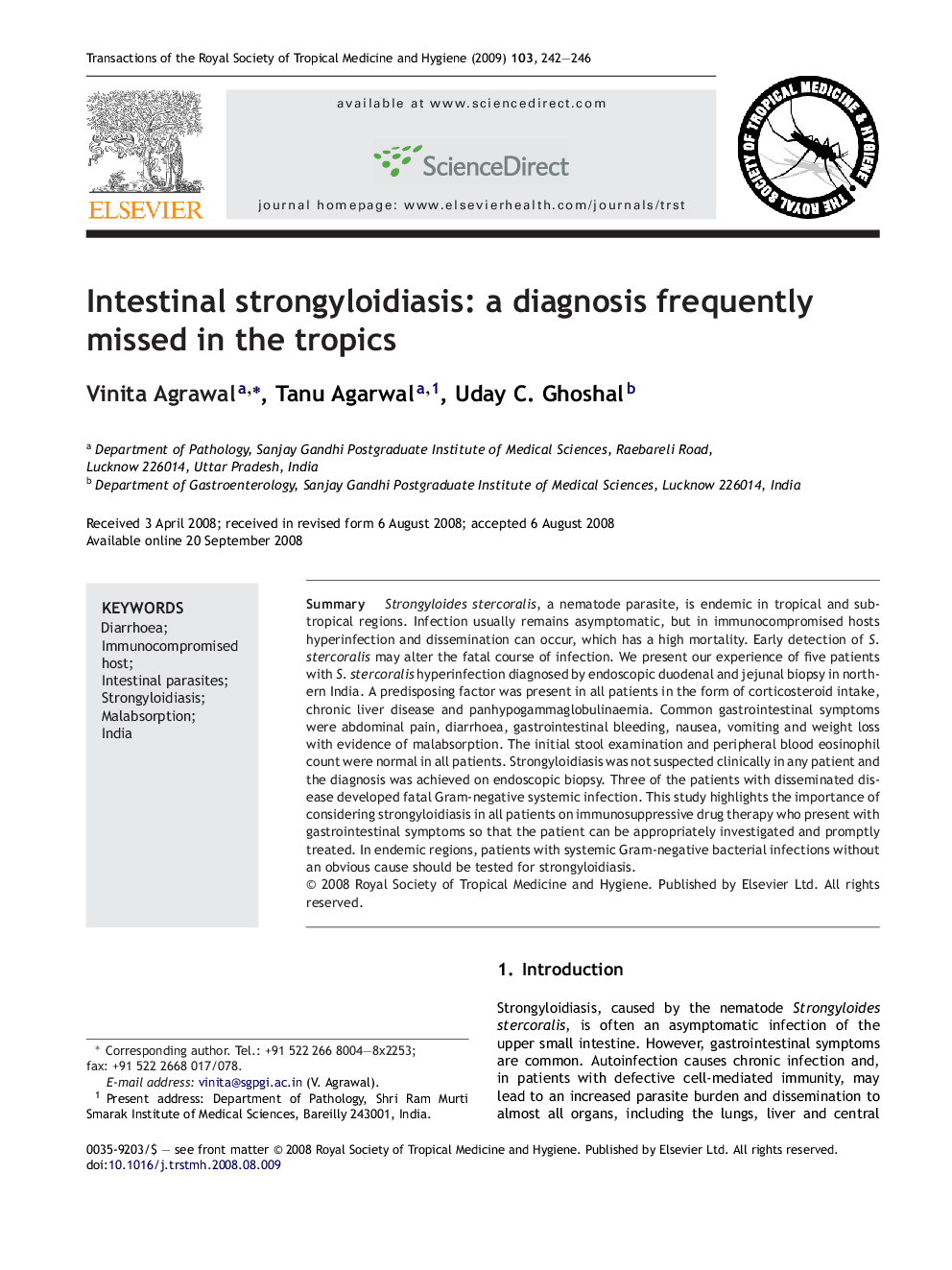| Article ID | Journal | Published Year | Pages | File Type |
|---|---|---|---|---|
| 3421250 | Transactions of the Royal Society of Tropical Medicine and Hygiene | 2009 | 5 Pages |
Abstract
Strongyloides stercoralis, a nematode parasite, is endemic in tropical and subtropical regions. Infection usually remains asymptomatic, but in immunocompromised hosts hyperinfection and dissemination can occur, which has a high mortality. Early detection of S. stercoralis may alter the fatal course of infection. We present our experience of five patients with S. stercoralis hyperinfection diagnosed by endoscopic duodenal and jejunal biopsy in northern India. A predisposing factor was present in all patients in the form of corticosteroid intake, chronic liver disease and panhypogammaglobulinaemia. Common gastrointestinal symptoms were abdominal pain, diarrhoea, gastrointestinal bleeding, nausea, vomiting and weight loss with evidence of malabsorption. The initial stool examination and peripheral blood eosinophil count were normal in all patients. Strongyloidiasis was not suspected clinically in any patient and the diagnosis was achieved on endoscopic biopsy. Three of the patients with disseminated disease developed fatal Gram-negative systemic infection. This study highlights the importance of considering strongyloidiasis in all patients on immunosuppressive drug therapy who present with gastrointestinal symptoms so that the patient can be appropriately investigated and promptly treated. In endemic regions, patients with systemic Gram-negative bacterial infections without an obvious cause should be tested for strongyloidiasis.
Related Topics
Life Sciences
Immunology and Microbiology
Applied Microbiology and Biotechnology
Authors
Vinita Agrawal, Tanu Agarwal, Uday C. Ghoshal,
